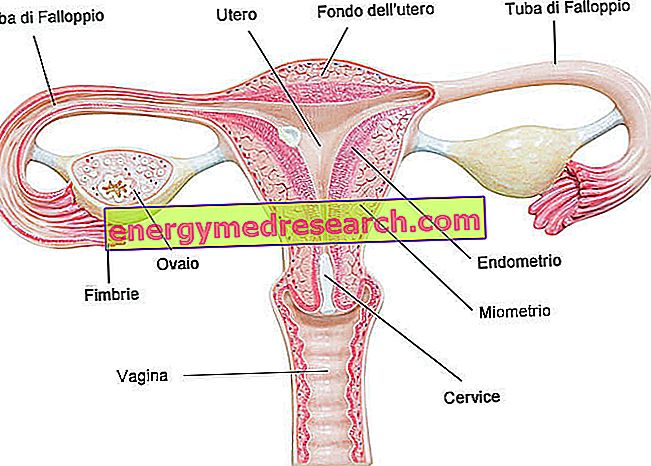Definition
The appendicitis outlines a morbid condition in which there is a clear and sudden inflammation of the vermiform appendix, a diverticulum that protrudes from the colon, precisely in the lower right abdominal area. The appendicitis, responsible for intense and acute pains in the lower abdomen, can be resolved exclusively by surgical removal.
Causes
The stagnation of poorly digested material and the hypertrophy of the appendicular lymphatic follicles can internally obstruct the appendix, creating inflammation. Some infections, such as viral gastroenteritis, mononucleosis, respiratory infections, measles and typhoid can be important risk factors for appendicitis, given that they tend to stimulate the growth and development of the lymphatic follicles just mentioned. Among the other hypothesized etiopathological elements, intestinal parasites (eg Ascaris, Tenia), gallstones and cancer should not be forgotten.
Symptoms
The key symptom of appendicitis is abdominal pain, strong and lancinating (from the navel to the lower abdomen, to the right), which worsens by coughing, walking or simply moving; the pain gets worse with the passing of the hours and the affected subject finds no respite. Other signs and symptoms associated with appendicitis include: loss of appetite, constipation / diarrhea, fever, abdominal bloating, bloating, vomiting.
Diet and Nutrition
Information on appendicitis - drugs for the treatment of appendicitis is not intended to replace the direct relationship between health professional and patient. Always consult your doctor and / or specialist before taking Appendicitis - Appendicitis Treatment Medicines.
drugs
There is no pharmacological treatment to cure appendicitis definitively; in fact, surgery is the only possible and effective option.
In medical terms, the extraction of the inflamed appendix is called appendectomy: it is a rather simple surgery, able to completely and quickly resolve the pathology, without leaving any damage. Clearly, permanent resolution from appendicitis is only possible when the patient is rapidly operated
Failure to treat appendicitis can degenerate into peritonitis and abscesses, which can endanger the health and life of the patient.
While waiting for surgical extraction, it is sometimes recommended to take laxatives (eg psyllium, mucilage, bran, anthraquinone drugs such as senna, aloe, rhubarb, etc.) and analgesic drugs (NSAIDs), able to favor respectively intestinal motility and to relieve excruciating pain. However, it should be pointed out that the administration of anti-inflammatories is contraindicated during the diagnostic assessment, given that they can hide the symptoms.
In the event of a confirmed bacterial infection in place, the administration of specific antibiotics to the pathogen responsible for the insult is recommended: generally, the antibiotic is administered via a nasogastric tube or, less frequently, by transfusion therapy. The antibiotic must be taken until the day after the surgery. Consult your doctor.
Deepening: Chronic appendicitis
There is also the chronic form of appendicitis, whose surgery is not always essential; in the context of chronic appendicitis, pain presents itself with a lower intensity than the acute form, although continuous for short periods.
Generally, therapy for the treatment of chronic appendicitis is based on the correction of the patient's eating habits and lifestyle:
- Follow a high fiber diet
- Take plenty of fluids
- Take occasionally and for short laxative periods (purgatives) to facilitate intestinal transit
If none of these behavioral rules are effective for the patient's recovery, the only possible option to cure chronic appendicitis definitively is surgical removal of the inflamed diverticulum.



